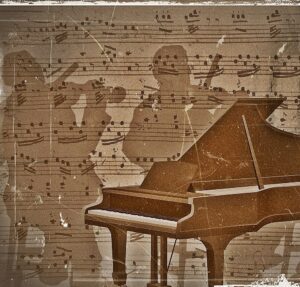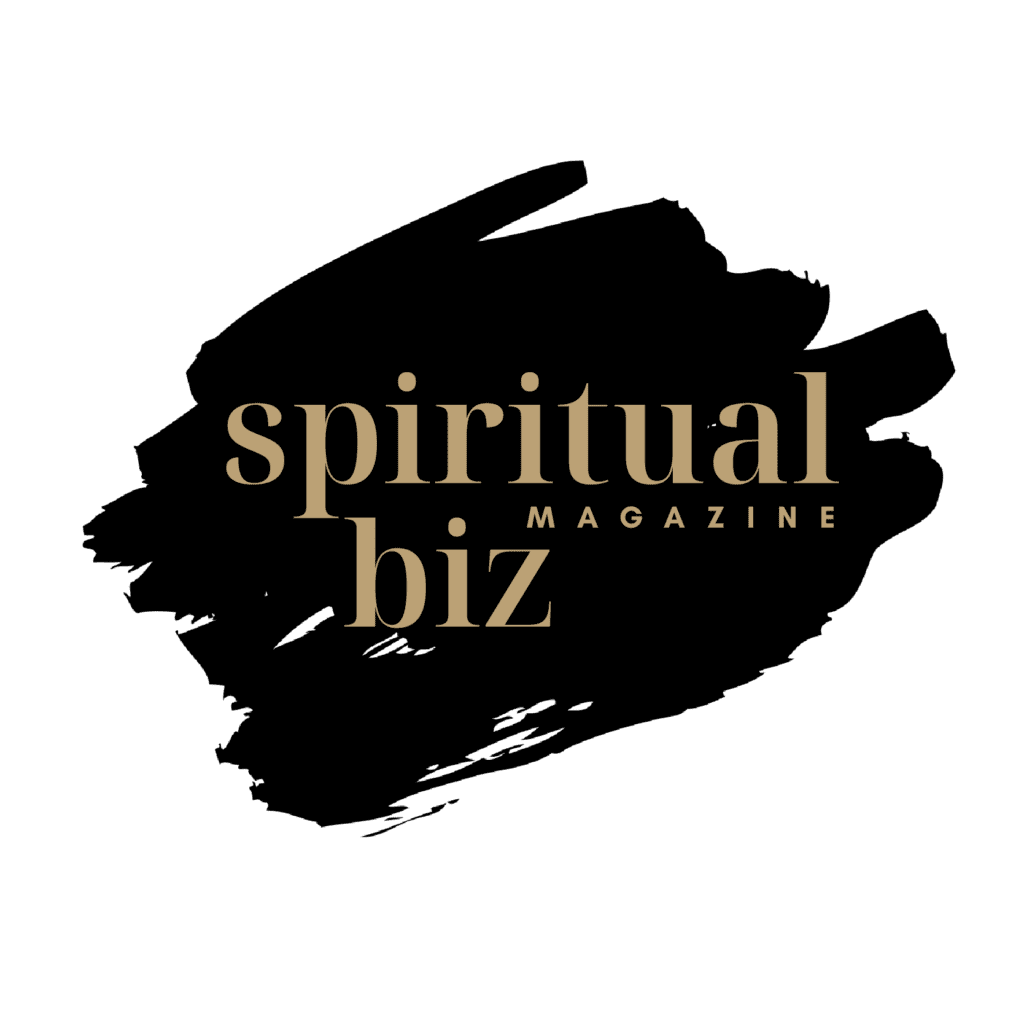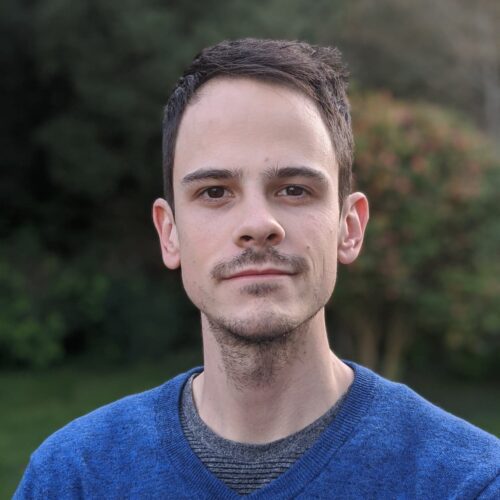 Those moments where everything just clicks in; with words or phrases which previously seemed cliche, now feel profound.
Those moments where everything just clicks in; with words or phrases which previously seemed cliche, now feel profound.
About a year ago, I had such an experience while watching the musician Jacob Collier explain to five people—with varying ages and levels of understanding—what musical harmony is.
(If you haven’t seen the video yet, definitely check it out here)
As I was watching Jacob explain harmony in storytelling terms, there was a cascade of fireworks that went off in my brain.
Something became very clear to me at this moment, namely that…
MUSIC IS LIFE
Have you ever heard music, and art in general, be described as a metaphor for life?
The climax and resolution; the ups and the downs; tension; context—these are all key aspects of storytelling, which is synonymous with our existence.
When speaking to Herbie Hancock—the highest level of harmony understanding in the video—Jacob asks him a striking question about making harmonic choices while improvising:
“How do you make the choices? There’s so much that’s possible. How do you have the courage to make a choice?”
Herbie answers:
“It comes from your life experience, and that moves you in a certain direction. How it gets expressed… many times… is a complete surprise!”
And therein lies the surprising reason you should learn improv…
LEARN IMPROV TO DISCOVER WHO YOU ARE
Musical improv, as I see it, is simply playing music that you made up.
Beethoven’s Sonatas are often referred to as his diaries; glimpses into his soul.
Beethoven was an improviser, just like Herbie and Jacob.
SONGS ARE STORIES
When you improvise, you watch yourself tell the story of your life—in terms of pure emotion.
This skill—the ability to learn music as a means of emotional expression—is a mountain worth climbing; and it’s not as out of reach as you might think.
But Alex, why should I learn piano through an improvisational lens? What if I just want to learn how to play music and have fun, not make it myself?
The answer is that the two don’t have to come mutually exclusive to one another.
That is, you can learn and play your favorite classical, rock, hip hop songs, while still leaving yourself room to learn improv.
What you want to avoid is a high-stakes, fever-pitched race to learning to play Claire De Lune at all costs. This is a fast way to burnout (if your #1 goal is to become a concert pianist, this advice may not be applicable).
This is how a lot of classical education is structured today. It’s not uncommon to have a sour taste in your mouth from your childhood years of piano:
Practicing tricky fingerings bar by bar, memorizing long, complex pieces, and praying that you’ll remember how to play them in front of your friends and family when the time comes.
This form of classical training often creates ‘museum archivists’. Pianists who only wield their ability to recite ancient, impressive-sounding classical tunes; as if they were a walking museum.
When they play, their audience often isn’t themselves; it’s the spirit of their strict teacher, noting every mistake made; every deviation from perfection and excellence. This is a creativity-stifling phenomenon.
SO WHAT IS MY EXPERIENCE WITH IMPROV PIANO?
 What’s my musical history?
What’s my musical history?
And why am I so eager to tell you that you should learn improv?
I began playing piano about eight years ago. When I was a teenager, I was deeply inspired by romantic and impressionist pianists such as Chopin, Debussy, and Liszt.
The expression and emotion conveyed by these pianists moved me profoundly, and a strong desire to play like them began building within me.
When I finally decided to sign up for my first set of lessons, getting ‘classical’ piano lessons seemed like a no-brainer; it was classical music that inspired me, right?
I learned all about technique, music notation, theory, and the proper way to play classical tunes; that is, how to play music on a page exactly as written.
I enjoyed the first few months of lessons learning the piano.
I loved the feeling of rapidly improving and moving through book after book.
But then things started to slow down. Pieces were taking me longer to learn. I was getting demoralized. I wasn’t having much fun anymore.
I felt like I wasn’t on the right track to attaining the emotive mastery I heard while listening to Debussy.
And this was mostly because little room was left for expression; the gateway into the emotional realms.
PRACTICING FELT LIKE A CHORE
I would often “procrastinate” during this time, and goof around. I’d play and ‘pretend’ like I was performing some song I knew.
I stuck to the white keys; it always sounded bad when I would use any black keys (unless I only used the black keys).
I didn’t piece it together until later that I was improvising in the key of C, and with the F# pentatonic scale.
At the time, however, I saw it as procrastination; time taken away from memorizing classical fingerings before my weekly lesson.
Eventually, I stopped lessons. I took a 3-year hiatus from piano during engineering school. Playing music was the last thing on my mind.
Then, in September 2018 after graduating and getting a job in Seattle, I decided I wanted to start again.
After a bit of searching, I met my present teacher, David Christie.
David is a jazz pianist, composer, and improv music teacher. His style is deeply emotional and expressive.
I immediately recognized that he had caught the same bug that I did as a teenager listening to Romantic era pianists: the itch to explore the frontiers of emotion.
David helped me bring a level of expression out of myself that I knew existed, but had never heard with my own ears.
At first, I was focusing on learning expressive romantic era pieces during our lessons, but I was also “procrastinating” during my practice sessions every now and then.
But now my procrastinations (improvisations) were different. I was playing at a different level, and it showed in my improv.
One night, I had a profound experience while improvising. It felt as though a spirit had possessed me, taken control, and exercised their far-superior playing ability.
I was shocked by what I heard myself playing.
I was playing boldly; taking risks; coming up with solutions that I had no idea were inside of me.
These experiences helped me see that I was capable of the same things in life. I realized no matter the disharmony or uncertainty I’d experience, that there was always a way to resolve.
These revelations helped give me the courage to leave a job that was not suiting me.
What I’d found was a gateway to my subconscious: a two-way bridge between my emotional, subconscious, and my intellectual, conscious mind.
I realized I had to build a sturdier bridge: to put in the time and effort to repeat these experiences with more consistency.
And so from that point forward, I resolved to develop a fluency in the language of music.
And now I want to help you do the same.
SO WHERE SHOULD YOU START?
 A fundamental principle you want to remember is that you eventually want to be able to play in all keys.
A fundamental principle you want to remember is that you eventually want to be able to play in all keys.
You will both bore and limit yourself if you stick to only one or two keys.
Now, learning to play in all keys requires a great deal of mental effort and determination.
It means learning and applying music theory. This involves a great deal of memorization and abstraction.
But it’s worth the climb.
In our first lesson, David explained to me that music had a holy grail, and it was called the Circle of Fifths.
The circle is a model used by musicians to represent how the 12 keys relate to each other.
If you want to play in all keys, you need to have a solid grasp and mental model of the circle.
So, to improve at improv, regardless of your skill level, begin by setting an intention to master the circle of fifths, and then take action to do so.
YouTube is a fantastic resource to learn musical concepts.
Check out this video from Michael New if you’re completely unfamiliar with the circle of fifths: The Circle of Fifths – How to Actually Use It
Don’t worry if you don’t fully understand it. Even the most experienced improvisers are constantly re-upping their musical mental models.
Never forget the most important part…
Wherever you’re at in your musical journey, and no matter what anybody says, having fun should be your number one priority.
If your current system isn’t allowing for that, it’s time for a change.
The more fun you have, the faster you’ll learn. Sitting down to play will never feel like a chore. Playing music should almost never feel like a chore.
I’ll leave you all now with a lyric from eloquent folk musician and improviser John Craigie:
“You gotta give yourself the shivers before you can give ‘em to someone else
So I wrote Mr. Tambourine Man and I left it in the dust
The perfect song is the song that you only got to play once”
Now get out there and give yourselves the shivers.


